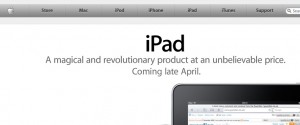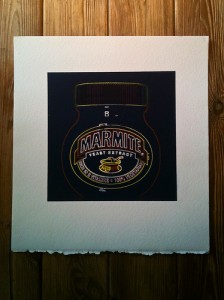The iPad is coming (beginning of April in the US, late April in the UK) but nobody has the faintest idea what will happen when it arrives. All over the computing industry, manufacturers are frantically trying to get their own iPad-lookalikes ready. HP has got one, apparently. No doubt ASUS has too. Google is rumoured to be working on an Android slate. And so on. Up to now, there’s only been a niche market for tablet devices (despite Bill Gates’s historic conviction that they would be the New Big Thing.) The $64 billion question is whether the Apple product will rescue the industry by creating a whole new product category — between the netbook and the laptop/desktop.
The content industry — especially the publishers of high-end magazines — is also waiting with bated breath to see what happens. Will the device rescue print from having to go down the cul-de-sac of web paywalls? That’s why publishers are so interested in putting out their publications as Apps rather than sites: doing it that way means that there’s a way of charging for content that consumers apparently find acceptable. The problem, of course, is that that gives Apple another chokehold on online content: everything has to go through the iTunes store, and Apple gets a cut of all the action thereon.
So this is a strange time: a huge industry is holding its collective breath to see if a single company will change everything. Will the iPad be a game-changer, as the iPhone has proved to be? Or will people buy it and then wonder — after the novelty has worn off — if it was worth all the fuss? Nobody knows.
LATER: It seems that Apple is barring UK customers from pre-ordering the iPad.


